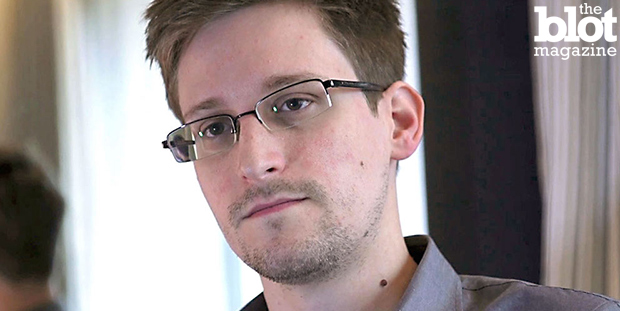
On Sunday, Britain’s Sunday Times newspaper published what would have been an extraordinary exclusive: Intelligence operatives working under the Russian and Chinese governments had landed 1.7 million documents taken by former National Security Agency (NSA) contractor Edward Snowden and had managed to de-crypt the security encryption on the files.
In doing so, the story alleged that both governments had the potential to learn about clandestine activities by foreign actors operating in the countries. As a result, at least one of those foreign actors — the United Kingdom — was said to have been relocating their spies out of an abundance of caution.
On its face, the bombshell report appeared to have confirmed the worst fears of those who both supported and admonished Snowden for his leaks: that they had finally done some sizable damage to intelligence-gathering operations since the initial publication of some of the documents two years ago.
But it didn’t take long after the publication of The Sunday Times article before some serious questions about the credibility of the story and the claims in it began to rise.
For one, the story rests entirely on claims made by unidentified sources. The only person actually named in the story — Sir David Omand, the former head of Britain’s intelligence agency, Government Communications Headquarters (GCHQ) — is quoted merely as a reactor to the information sourced to individuals not identified by name.
Those sources were, instead, identified by rank, said to be close aides to David Cameron, the British prime minister. Cameron has been a staunch opponent of newspapers — specifically, The Guardian — printing the documents taken by Snowden, alleging that publishing the documents would damage the work of foreign intelligence agents working for the British government and others. Britain’s conservative-leaning papers — among them, The Sunday Times and The Sun — have in the past repeated claims made by conservative politicians and other unnamed sources in Britain’s government without so much as a shred of evidence to support them.
Read more: British PM David Cameron Wants More Snooping
One such claim repeated by The Sunday Times is that Snowden had downloaded 1.7 million documents during his time as a government contractor — a figure that the report did not source to anyone. That number initially originated with U.S. lawmakers who had been briefed by Department of Defense officials months after news organizations began publishing the first batch of Snowden documents.
That number has been repeated time and time again as fact — sometimes erroneously attributed to leaders at the NSA, to Snowden himself or without attribution at all — even though James Clapper, the Director of National Intelligence who advises the president on national security matters, has himself said that the actual number of documents commandeered by Snowden is lower, and that nobody really knows just exactly how many were taken.
Ryan Gallagher, a journalist with The Intercept who has seen the cache of Snowden documents and worked closely with reporters who published some of them, wrote in a blog post on Saturday that the “claim or insinuation that he leaked 1.7 million is not true.” In a follow-up conversation by direct message on Twitter, Gallagher said his comment applied to both the number of documents downloaded and leaked by Snowden.
The Sunday Times piece also did not explain how Russian and Chinese operatives got ahold of the documents — if they were handed over by Snowden, taken from him or somehow obtained another way. Snowden has asserted he took measures to safeguard the documents from being intercepted by Chinese spies during his brief stint in Hong Kong, and that he handed over his entire cache to journalists before departing for Moscow. That claim can’t be verified, though it would seem unlikely a man with an understanding of clandestine operatives (he once worked for the Central Intelligence Agency) would want to make himself the target of foreign agents by carrying around a thumb drive full of government secrets after unmasking himself as the western world’s most-wanted whistleblower.
Read more: Snowden’s Life Burned to the Ground — and He Couldn’t Be Happier
Even if Russia and China had somehow commandeered the Snowden cache, The Sunday Times offered no evidence that either government had been able to crack an encrypted security mechanism designed to protect them. Nowhere in the article was there even a suggestion that Sunday Times reporters pressed government officials for information on how the encryption was cracked. Instead, the narrative was offered without question, passed along as fact from questionable sources who, if the story turns out to be untrue, can never be held to account.
Last — and perhaps most troubling — is the claim from one unnamed source that if foreign agents were able to seize whole information from thousands of Snowden documents that the whistleblower would have “blood on his hands.”
This line has been repeated numerous times by lawmakers critical of Snowden’s actions both in the United States and abroad. And it is often used alongside the notion of “homeland security” in drumming up support for the continuation of controversial and invasive surveillance programs that Snowden’s leaks helped expose to the world.
Yet, as Snowden and his supporters have pointed out, there is not one piece of evidence that anyone has been gravely harmed by the publication of the documents, nor has it been proven that intelligence has waned either. It would be foolish to assume that terror networks and other bad actors have not glanced at the documents and shifted their communication and operations strategies accordingly — but there’s no evidence of it. In fact, there’s no evidence that the surveillance helped thwart terrorism in the first place, as a White House empaneled review board determined two years ago.
Perhaps most telling is that a government source, repeating some of the information in The Sunday Times piece, told the BBC that there was “no evidence” anyone had been harmed by Russia and China’s purported decryption of the files.
There is, however, ample evidence of an ongoing campaign to discredit Snowden and the reports that came from his documents. According to documents obtained by Vice News journalist and open government aficionado Jason Leopold, lawmakers asked the Pentagon twice — in December 2013 and February 2014 — for information that could be used to “damage” Snowden’s “credibility in the press and the court of public opinion.”
Read more: IN THEIR OWN WORDS: Journalists Talk About NSA Surveillance Harming Journalism
Within days of the first request, the CBS newsmagazine program “60 Minutes” was given unprecedented and guided access into the inner workings of the NSA. The story included a lengthy and, at times, candid interview with Gen. Keith Alexander, then the head of the NSA, who pleaded with the American people to “understand what we’re doing and why we’re doing it.” And what the NSA was doing was to defend “this country from future terrorist attacks” while at the same time “defending our civil liberties and privacy.”
The unequivocal tone of the piece: The federal government are the good guys, the defenders against terrorism and the protectors of civil liberties. And the bad guys are the whistleblowers and journalists who expose them.
That sentiment was repeated time and time and time again — even by President Obama, who praised intelligence agents as “patriots” while his administration pursued espionage charges against Snowden. And it’s been repeated overseas, especially in countries where governments are currently attempting to justify the tightening of their own foreign surveillance programs: Just four days before The Sunday Times report, a report commissioned by Cameron himself called for the British government to not only continue their intrusive mass surveillance programs, but double down on them.
The Sunday Times report raises more questions than answers. It also offers an uncomfortable feeling that government sources may have planted a story in a major national newspaper to lend credence to their own agenda — it wouldn’t be the first time, but it’s nonetheless uncomfortable whenever the evidence points to it. For that reason, the sources in the report should never have been granted anonymity, and the governments levying those accusations have a lot of on-the-record answering to do.
Matthew Keys is a contributing journalist for TheBlot Magazine.





